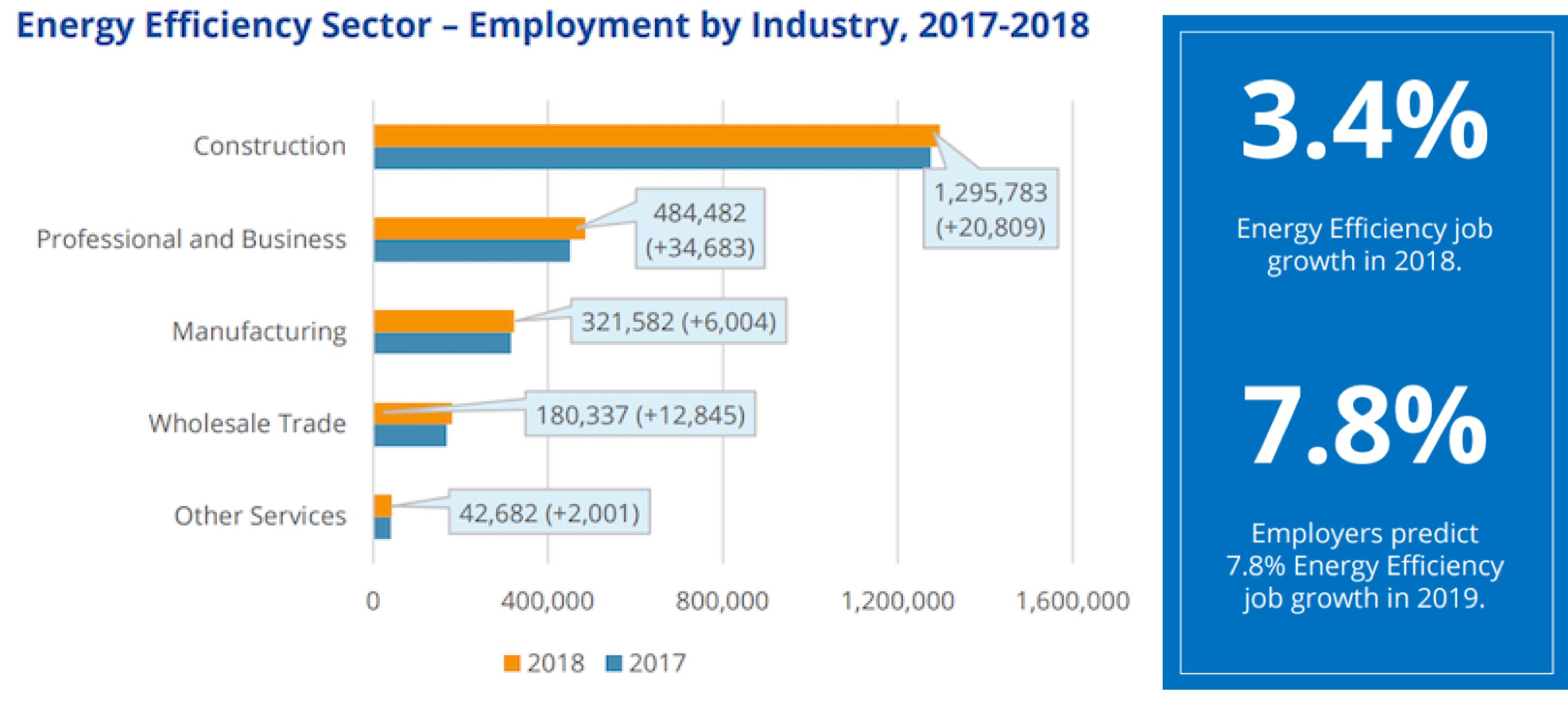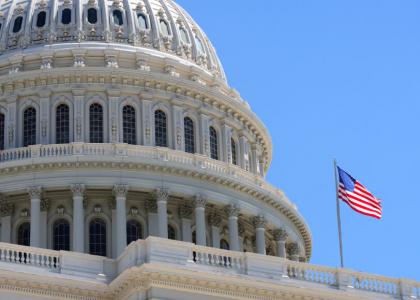As new studies show energy efficiency is supporting more jobs and attracting more investments, ACEEE today releases a toolkit to help states quantify all the economic benefits of energy-saving programs. Policymakers are increasingly interested in accounting for these benefits but have often found it difficult to do so.
State regulators know efficiency is a big economic driver. US energy efficiency efforts directly support 2.35 million jobs and indirectly, many more, according to an annual report released last week by the National Association of State Energy Officials (NASEO) and the Energy Futures Initiative (EFI). What’s more, manufacturers of fuel-efficient vehicle parts employ another half million Americans.
Energy efficiency policies can spur such jobs. In Florida alone, for example, our research released last month found the state could add as many as 135,000 by adopting five key policies.
Source: U.S. Energy and Employment Report 2019 (left); U.S. Energy and Employment Report 2019 (right)
In addition, energy efficiency is also spurring investments around the country. It drew a 2.6% annual increase in utility investments from 2014 to 2017, according to ACEEE’s annual State Energy Efficiency Scorecard. Looking forward, Navigant Research estimates these investments will grow at a compound annual rate of 4.6% in the US and Canada over the next decade. Such investments can generate substantial economic development.
Quantifying efficiency’s economic impacts, however, can often be a challenge. That’s where ACEEE’s new State Policy Toolkit comes in. It covers a variety of methodologies for accounting for the economic impacts of efficiency programs as well as potential pitfalls including double-counting benefits, incorrectly assigning expenditures when designing economic models, or even undercounting costs. By looking at program assessments and proven methodologies, state regulators will have a more complete picture of the benefits of these programs and be able to make more judicious decisions.
Share
TAGS: Jobs, State Policy




